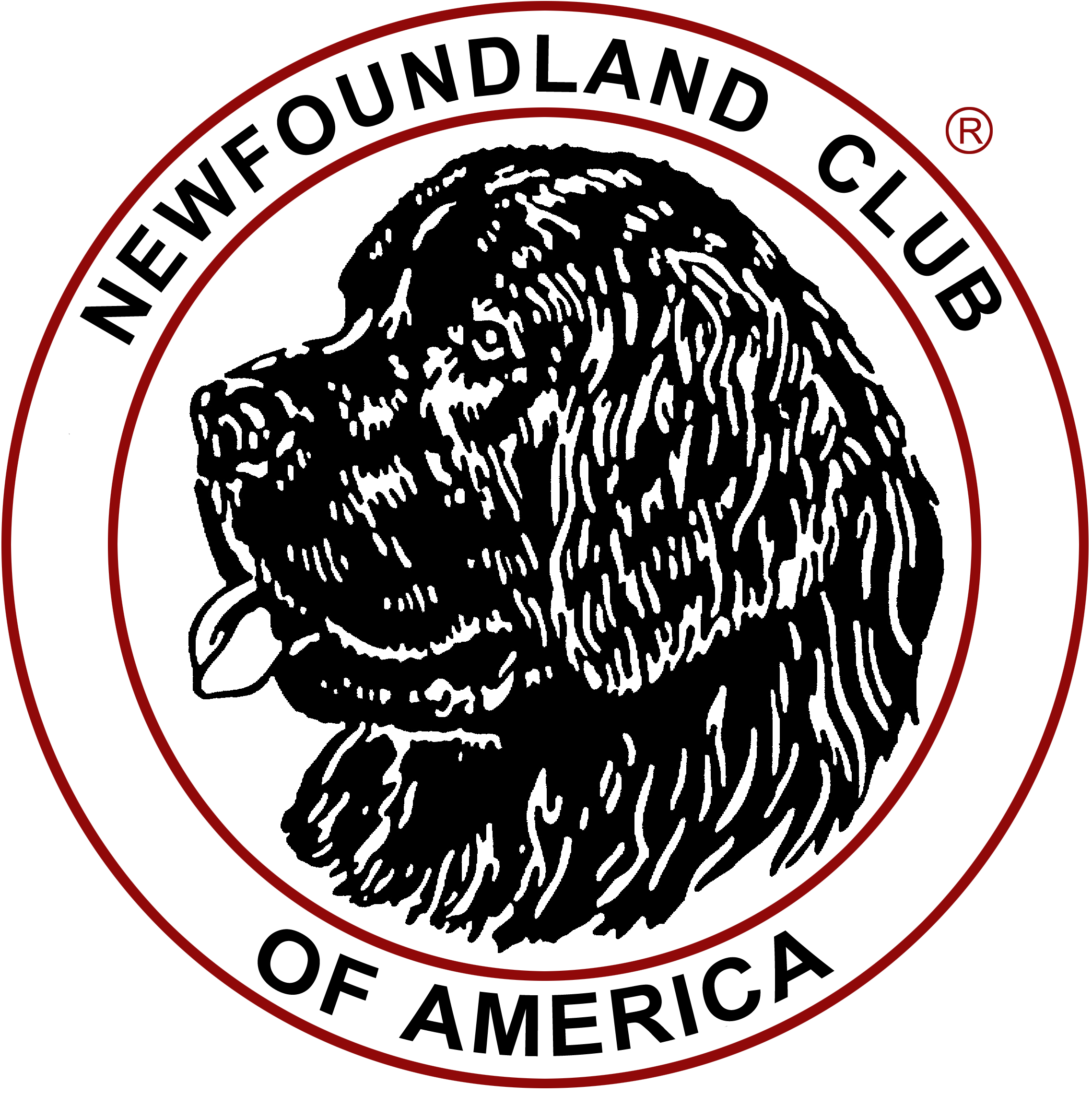

by Roger Frey
When I was asked to write an article on the subject of responsible stud dog ownership, I happily agreed as this has always been a pet subject of mine. This article is written regarding responsible stud dog ownership as it relates to the proper placement of puppies and assumes that ideal temperament, correct conformation, and relevant health clearances are present in and for all dogs concerned.
We listen to our gut feelings about people, too. The few times that we did not go with our initial feelings, we regretted it. (There’s a reason you get a gut reaction.) This has caused us to be more cautious. We have the advantage of being a small breeding kennel and we are very selective as to where our puppies go.
Responsible stud dog ownership is imperative if we, the NCA, are ever to reduce the number of Newfoundlands in need of rescue. The breeders of unwanted Newfoundlands are only half to blame for this deplorable situation; unless these breeders own their own stud dog(s), the owner of the stud dog must also be held accountable. The words “blame” and “accountable” are pretty strong, but I feel appropriate, all things considered. I have always found it curious at best that many responsible and caring breeders are extremely conscientious when it comes to placing puppies in their new homes. They use detailed, foolproof contracts to insure that the puppies they produce and place will be in permanent, safe, and loving homes. These contracts often have clauses requiring spay/neutering and many have stipulations that require that the new owners of the puppy must contact the breeder if they can no longer provide a suitable home.
However, many of these same responsible, caring, and conscientious breeders will permit their stud dogs to be used by breeders that are not as responsible as themselves. Too often, these stud dog owners’ attitude seems to be if you’ve got the money, you can use the dog. I’ve never understood this double standard. It would be like grandparents loving and being concerned for their daughter’s children but having no interest or concern for their son’s children.
I have often heard from breeders that own stud dogs that they don’t and shouldn’t have any control over other people’s puppies. This attitude is totally unacceptable to me. Stud dog owners must use contracts which cover more than just how many matings there will be and how much money it will cost and when that money is due.
Our stud contracts cover:
• the minimum age at which puppies produced by my stud dog shall be placed.
• that puppies produced by my stud dog will have their hearts screened by a cardiologist before they are placed.
• that puppies produced by my stud dog will be taken back by the breeder if it should ever become necessary.
• that puppies produced by my stud dog will be placed on a spay/neuter contract and/or a limited registration, and that these same puppies will never be sold to a pet shop or broker.
This type of contract does not prevent all the problems that can and do occasionally come up, but it is a step in the right direction to help insure permanent, safe, and loving homes for puppies. These stud dog contracts should be as detailed as possible. I have often been criticized and told that our contract is too strict or that it makes things inconvenient. If the person who wants to use your dog is as responsible as yourself, then a contract that protects the puppies should not be any problem.
Contract or no contract, not everyone should breed dogs. You don’t have to let your stud dog be used. Trust your instincts. You don’t have to make any excuses.
Another situation which arises is the novice breeder who wants to be responsible and seems to have a good handle on what they’re getting into, and they want to use your stud dog. This scenario requires even more than just a good contract. You should be ready to help if necessary, all the way from the first mating to the placing of the last puppy.
Another problem that sometimes arises is with co-owned stud dogs, when one owner doesn’t keep the other owner apprised of proposed breedings. Inasmuch as the AKC does not require the signatures of all owners of stud dogs on litter registrations, this could prevent one of the stud dog owners from being responsible. Due to this problem, the NCA Board approved the recommendation of this committee and petitioned the AKC to require all owners’ signatures on all documents.
In closing, I urge all stud dog owners to be extra careful when allowing others to use your dog for breeding, not only for the sake of his puppies but also for the sake of the ensuing generations. Too often when looking at pedigrees of dogs from puppy mills that come through rescue, the names of well-known stud dogs appear. It makes me wonder why and how this happens.
reprinted from Newf Tide 2Q 2001